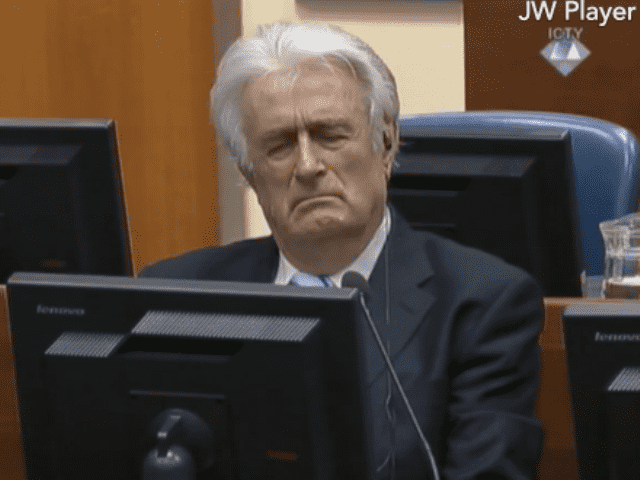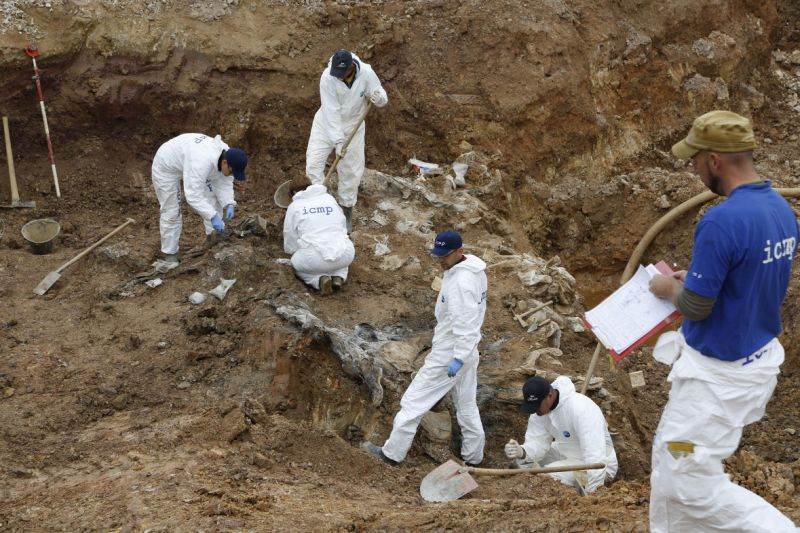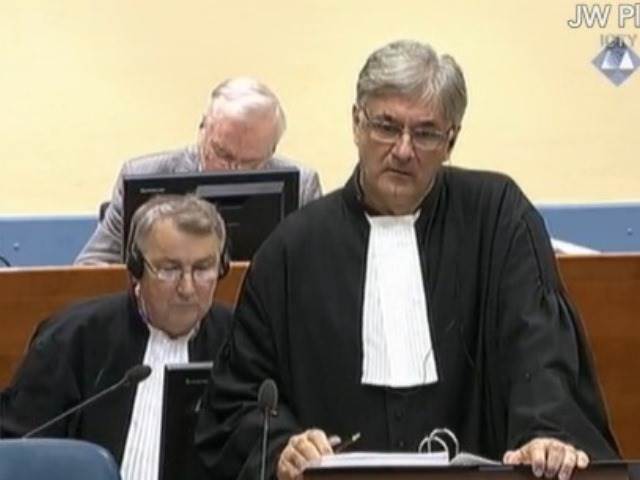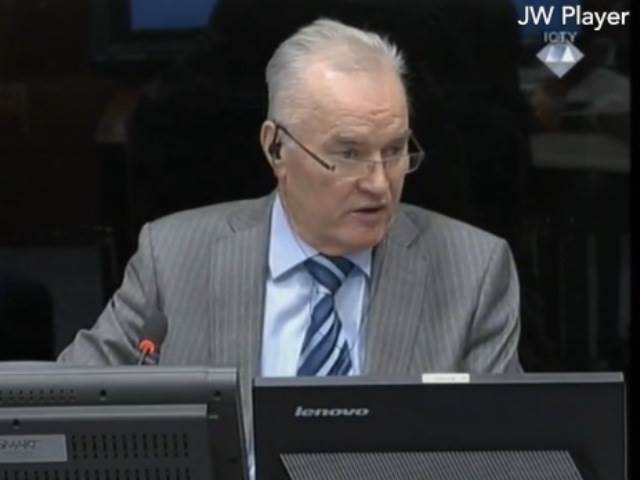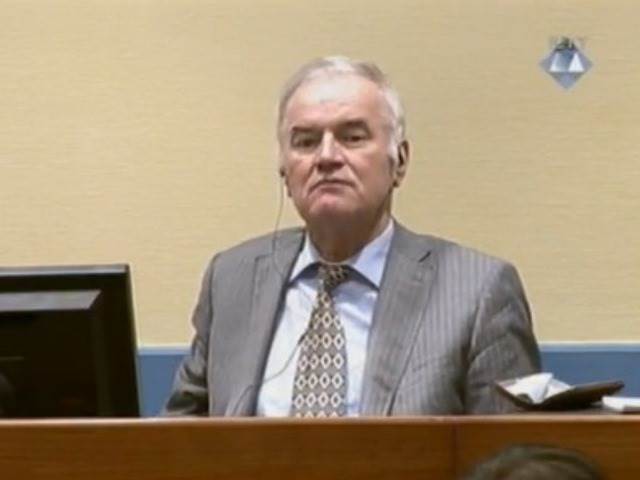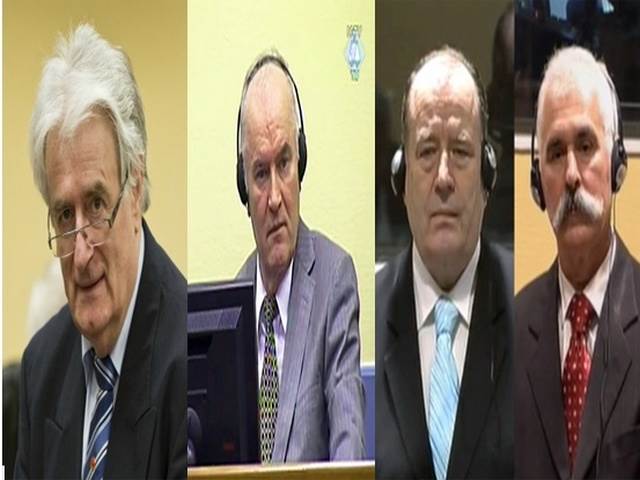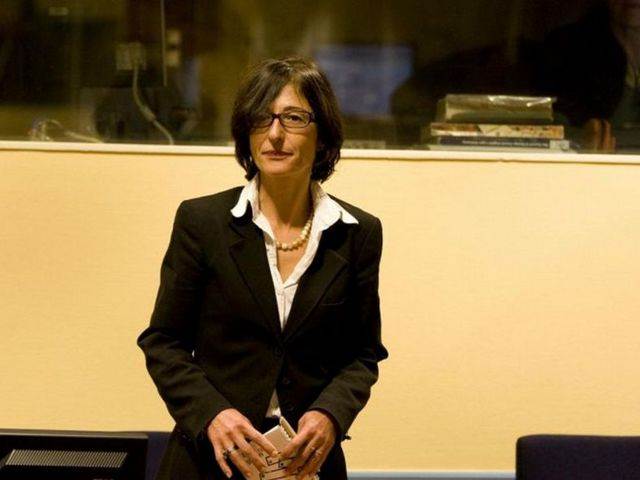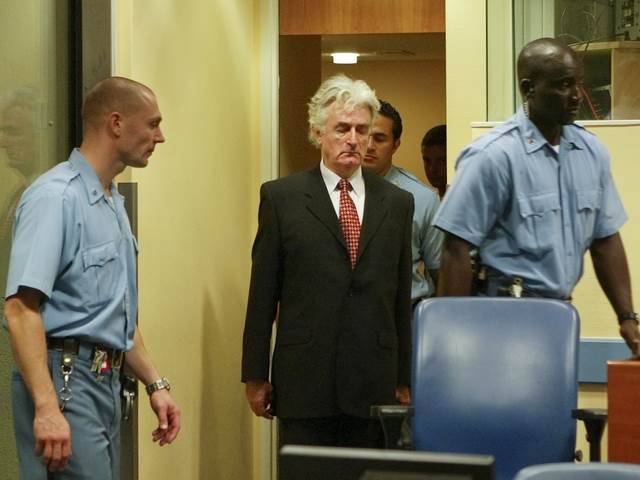The UN war crimes court pays around $1,000 a day to US lawyer Peter Robinson while he is working on former Bosnian Serb President Radovan Karadzic’s appeal against his conviction.
U nastavku suđenja Ratku Mladiću, vještakinja za demografiju Svetlana Radovanović nastojala je osporiti nalaze haških tužilaca u vezi s tijelima ekshumiranim iz masovne grobnice u rudniku Tomašica kod Prijedora.
A defence witness told the Hague Tribunal he tried to convince Ratko Mladic to surrender in 1995, but denied assuring the Bosnian Serb military chief that British intelligence would help...
Trećeg dana iznošenja nalaza na suđenju Ratku Mladiću, vještak Odbrane za sudsku medicinu Zoran Stanković osporavao je zaključke patologa koji su obducirali tijela iz masovnih grobnica povezanih sa padom Srebrenice...
Na suđenju Ratku Mladiću, vještak Odbrane za sudsku medicinu Zoran Stanković zatražio je da se uradi novo vještačenje o tijelima iz masovne grobnice Tomašica kod Prijedora, zbog određenih neslaganja koje...
A pathologist testifying in defence of former Bosnian Serb military commander Ratko Mladic contested an autopsy report about war victims’ bodies exhumed from a mass grave at the Tomasica mine...
Bosnia’s Serb-dominated entity Republika Srpska will spend 20,460 euros of public funds to cover the personal expenses incurred by war crimes defendants Radovan Karadzic, Ratko Mladic and others.
The UN court in The Hague found Serbian Radical Party leader Vojislav Seselj not guilty of crimes against humanity including murder, persecution and expulsions in Bosnia and Herzegovina, Croatia and...
The Hague Tribunal granted early release to French journalist Hartmann, its former prosecution spokesperson who was arrested over an unpaid fine for publishing secret court information.
Balkans expert Eric Gordy examines questions raised by the Radovan Karadzic verdict, asking why he was convicted of responsibility for genocide in 1995, but acquitted of the same crime in...

